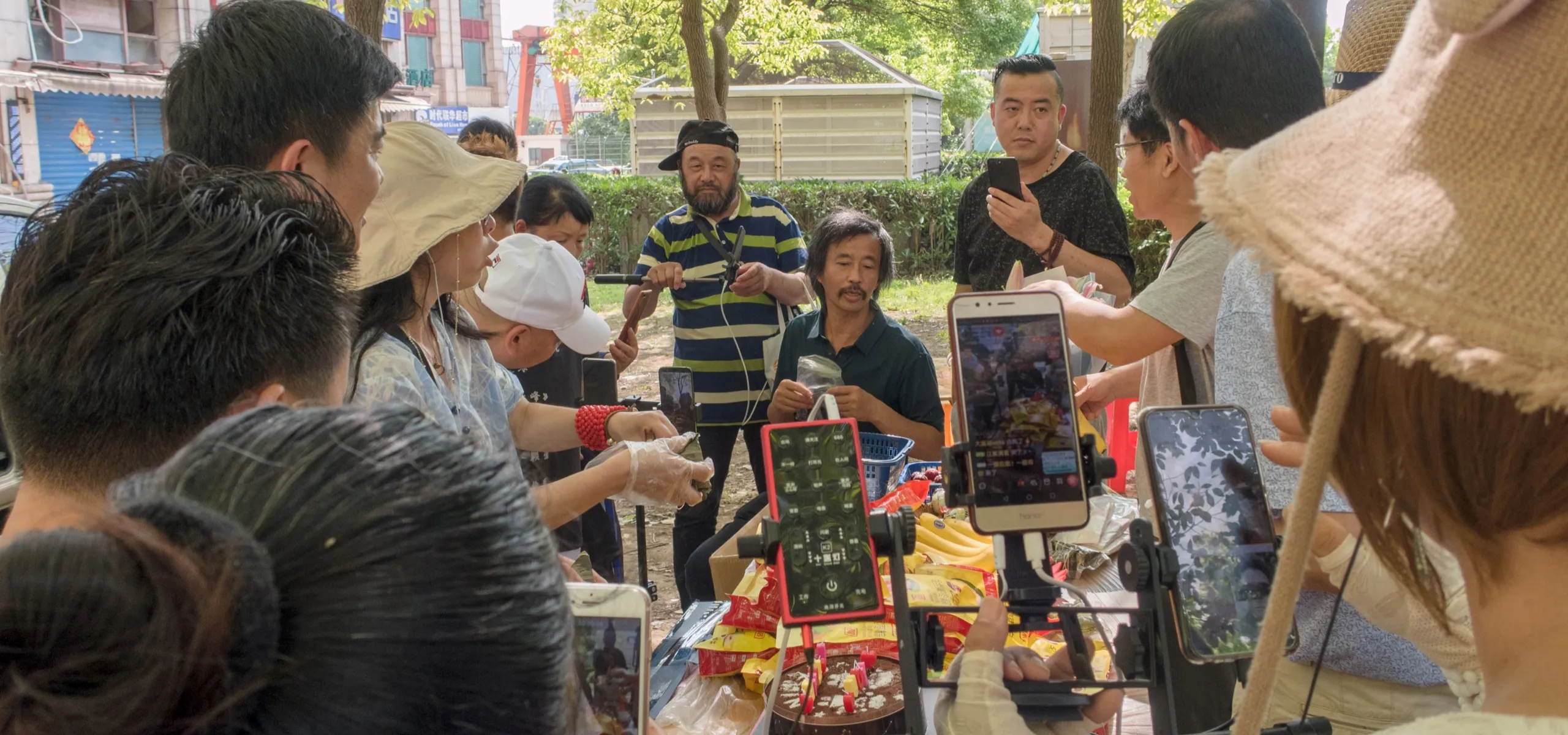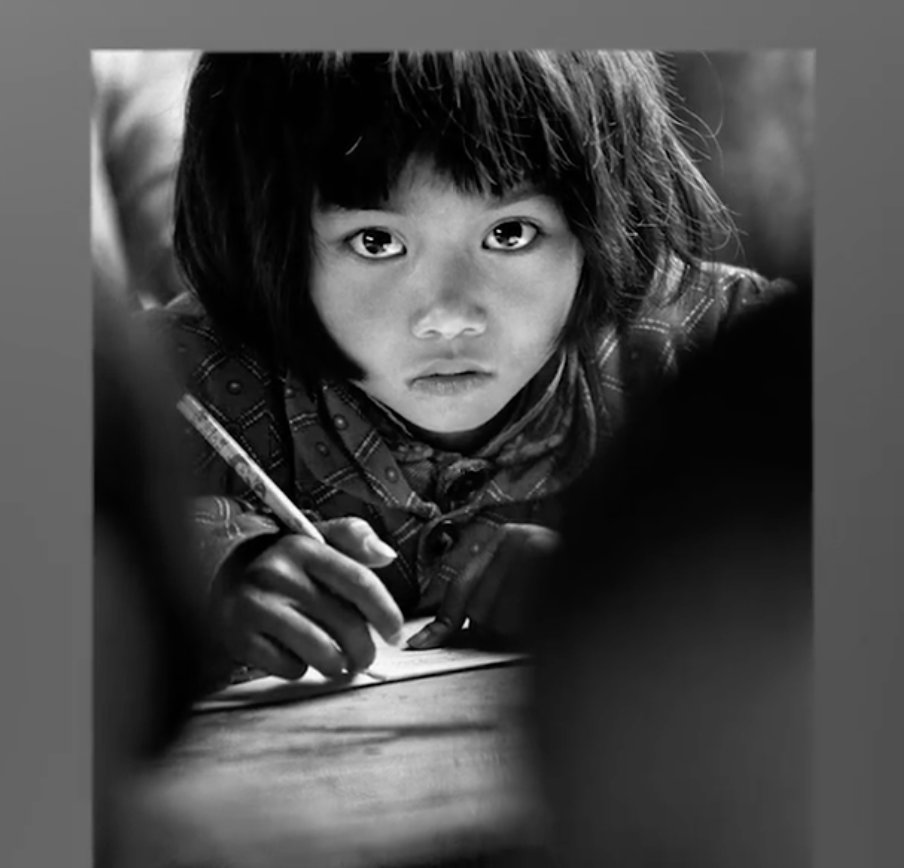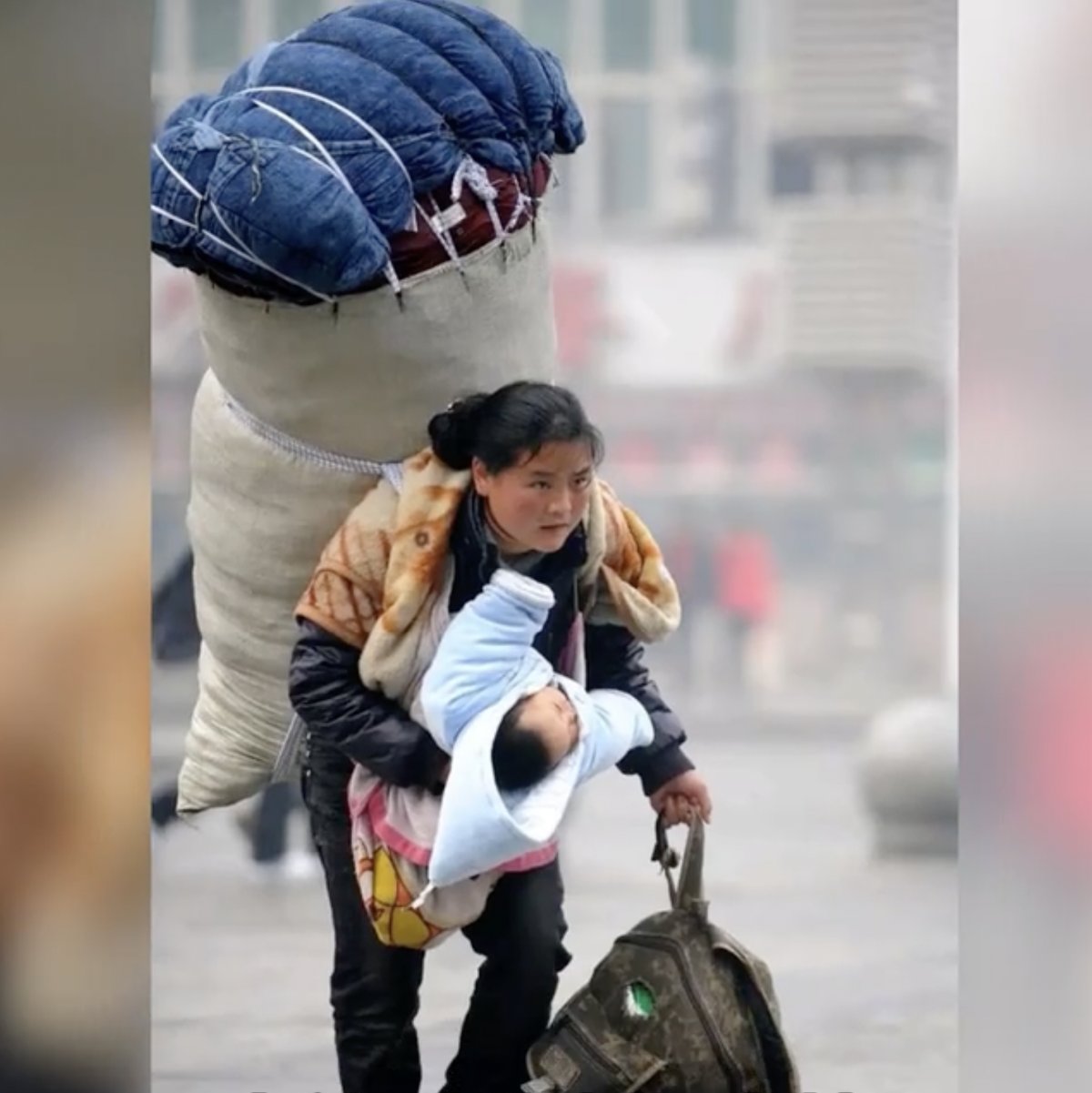From the “zipline girl” to the ex-thief with a catchphrase, here’s what happened to the ordinary people who became overnight sensations in the last 30 years
When Yu Yanqia got her first job offer, there were slightly more news cameras watching than for most fresh college graduates this summer. That’s because the 22-year-old from Yunnan province, who is due to begin working as a doctor in her home prefecture of Nujiang this month, had become one of the icons of China’s poverty alleviation and rural education campaigns 15 years ago, known all over China as “Zipline Girl.”
In 2007, a crew from Jiangsu TV captured footage of the then 6-year-old Yu, who is of the Lisu ethnicity, going to school in an unusual and dangerous way—by strapping herself to a rope cable and gliding high above the Nujiang River, even pulling herself over the raging currents when momentum wouldn’t carry her all the way across. This was the quickest way to leave Yu’s mountain village, and Yu and her sister made the journey to school once a week, carrying the wheels and straps for the zipline in their backpacks. After the TV segment aired, the remote area received donations to build three bridges across the river, and Yu’s admittance to university in 2018, as well as her graduation this August, were hailed as proof that hard work and investment in rural education can pay off.
Over the decades, TV, print media, and social media have made various ordinary people in China into overnight sensations, but their notoriety usually faded as quickly as it began. Here are a few individuals whose photos or stories shocked and moved people across China, and what happened to them following their rise to fame:
Girl with “Eyes That Want to Read” becomes youth league secretary
Before there was Yu Yanqia, the face of rural education was Su Mingjuan, a girl from Anhui province who was 7 years old in 1991 when journalist Jie Hailong took a photo of her at school, staring out over her notebook with enormous eyes. The haunting photo, called “The Eyes That Want to Read,” became the face of Project HOPE, an initiative by the China Youth Development Foundation and the Communist Youth League to improve rural children’s access to education. Su’s family also received a lot of donations from around China. Eventually, Su entered Anhui University, where she studied financial management, and became the deputy secretary of the Anhui Provincial Youth League.
Butcher with university degree becomes millionaire, donates to alma mater
In 2003, a local news report called “PKU Graduate Sells Meat in Chang’an” revealed that Lu Buxuan, a graduate in Chinese literature from Peking University, was operating a butcher shop in his home county in Xi’an. Lu had tested into the prestigious university with the top scores from his district in the college entrance exams in 1985—a time when any bachelor’s degree, much less one from China’s top university, was rare; but after graduation, for reasons that were never totally clear, he quit his job at a state-owned enterprise and decided to go into business. Most of his ventures were failures, and by the time the news report came out, he had been a butcher for three years, just scraping by.
“Chunyun Mother” lost baby, now a mother of four
In 2010, Xinhua journalist Zhou Ke was photographing the annual chunyun (春运, “spring migration”) ahead of China’s Lunar New Year holidays when he snapped a picture of a young woman carrying an infant and enormous heavy bags in front of Nanchang Railway Station. The photo, titled “Child, Mother Will Bring You Home,” was published by various news media and won awards. The unknown woman was dubbed the “face” of chunyun, representing the hardships of migrant workers as well as their determination to go home to their families for the holiday. Having said he always regretted not finding out the woman’s name, Zhou decided to look for her, and finally found Bamu Yubumu 11 years later in a village in Sichuan’s Liangshan Yi Autonomous Prefecture.
Apparently, Bamu, who belongs to the Yi ethnic group, had been unaware she was the subject of an award-winning photo and known as “Chunyun Mother” across China. She was only 21 when the photo was taken, and a mother of two. During the chunyun of 2010, she had been taking her younger daughter back to their hometown to seek medical treatment, but sadly, the baby died of her illness a few months after the photo was taken. Bamu never left her hometown again, and had three other children. In 2014, Bamu’s family was classified as an “impoverished household” and began receiving government assistance.
Ex-scooter thief who refuses to work has registered scooter trademark
Zhou Liqi, a man arrested for stealing electric bikes, shot to fame in 2015 when he told a journalist who asked why he committed the crime, “I need money, and I’d never get a job. I’d never get a job in my whole life. And I don’t know how to do business.” Overnight, “I’d never get a job (打工是不可能打工的)” became a trendy phrase, and Zhou became an icon to stressed-out office workers, with many memes emphasizing his resemblance to Che Guevara.
After he got out of prison in 2020, Zhou posted an apology video on short-video platform Kuaishou and tried to make a living livestreaming, but his social media accounts, with over 3 million followers, were shut down amid state media protestations that he was a bad influence. A barbecue restaurant Zhou started was supposedly also vandalized by competitors. He has been invited to appear or speak at various events, even working with a Guangxi e-bike company to register trademarks in his name. In April this year, he was spotted in a bar in Guangxi shouting “I’d never get a job!” along with an adoring crowd.
“Vagrant Poet” shaved beard, lent out savings to strangers
Shen Wei, a homeless man in Shanghai, went viral in 2019 with a video shot by passersby showing the 52-year-old collecting books and spouting off lines from ancient classics like The Commentary of Zuo (《左传》) and the Book of Documents (《尚书》). His unkempt appearance and humble living quarters beside the Yanggao South subway station seemed at odds with his eloquence, and hundreds of influencers flocked to take selfies with him and film his “wise” sayings about history, literature, and politics.
Shen had been on sick leave from the Xuhui District Audit Bureau since 1993 due to his odd habits, and had been living on the streets since he was evicted from his apartment in 2002. He bought books with the money he earned from recycling scraps. He said he had always been interested in literature, but his father forced him to study auditing, and once sent him to a psychiatric hospital. After he went viral, Shen cut his hair, shaved his beard, and began his own live broadcast channel, but abruptly stopped updating in May 2020, citing a lack of interest. In August this year, the manager of Shen’s social media channels revealed that Shen has “lent” strangers on the internet tens of thousands of yuan over the years, and that he was a very “trusting” person who is besieged by up to seven requests for money per day from people claiming to be starving or raising funds for cat shelters (Shen is a noted cat-lover who fed strays while he lived on the streets).
Book-loving worker left Dongguan, trying to write memoir
The start of the Covid-19 pandemic decimated many small factories in the Pearl River Delta, forcing migrant workers to return to their hometowns. One of them was 54-year-old Wu Guichun from Hubei province. Before leaving the city of Dongguan, he returned his library card at the Dongguan Library, where he’d been a reader for 17 years, and wrote a farewell message in its guestbook: “Books are the only totally good thing in the world...I will never forget this place for the rest of my life.”
The message went viral, as did Wu, inspiring discussions on the role of public libraries in urban life in China. Many employers offered Wu a job so he could stay in Dongguan and continue reading, and he accepted a position with a landscaping firm. However, he only stayed at this job for four months, citing problems with the salary and management. He has since worked various other jobs in Ordos and Shenzhen, and continued reading. He also started writing a memoir, but says he may not continue, as he cannot remember some details and wants the book to be totally true to life.


















